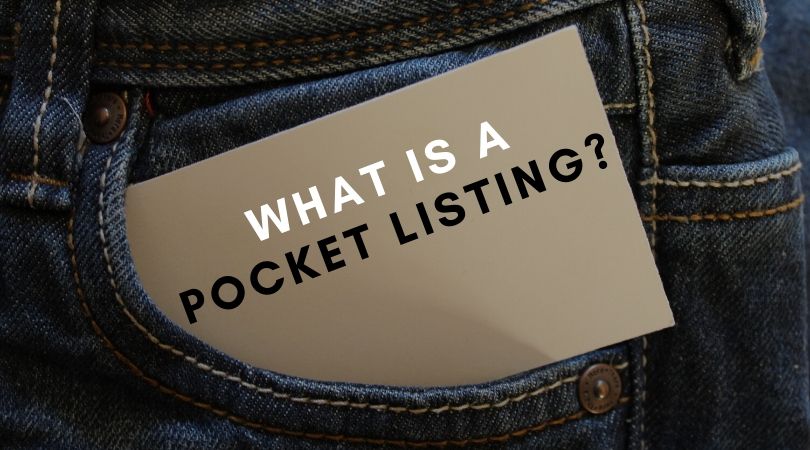You may have heard the term “pocket listing” either from a buyer or seller but just not sure what it means. Basically, a pocket listing is a property where a broker holds assigned listing agreement with the seller but never actually advertises of the property in the multiple listing system or the MLS. In the US this is called a pocket listing and in Canada, it’s called an exclusive listing. So why would a broker choose not to post a listing on the MLS? Doesn’t this restrict the number of buyers who could potentially purchase the property?
Pocket listings are often used in either celebrity or high profile cases where the seller or homeowner may need privacy or secrecy. Some sellers may have their own reasons for not advertising a listing on the MLS and it could even go as far as discrimination. However, this, of course, is not the idea behind a pocket listing. They can be very appealing to buyers who are looking for exclusive opportunities but that also means their agent and the listing agent need to be in close communication so that when the right property does hit the market, the right buyer can follow suit. It’s important that both buyers and sellers know the advantages and disadvantages to a pocket listing.
What is your home currently worth?
Advantages.
Of course, not every listing should be a pocket listing otherwise there would be anything for the average home buyer to look for online. Pocket listings are good for sellers if they don’t want a lot of showings that their home, they may be selective about who knows the home is actually for sale or they may not even want their neighbors or family members to know it’s for sale until it is sold or they simply trust their real estate agent to give them the highest value possible, which is a very slippery slope for most real estate agents to travel.
From a buyer’s perspective, a pocket listing is good because there’s less competition on a property lowering the buyer’s chances of having to outbid someone else. Pocket listings may even offer great deals and don’t necessarily have to be a high-end home. Sometimes homeowners want to move and sell quickly and remain private with their listing potentially due to financial issues or some other legal constraints.
Disadvantages
The obvious disadvantage for sellers is that the home is not listed on the MLS, which broadcasts nationally to places like Zillow, Trulia, and Realtor.com. If it’s not out on all of these websites it’s not going to be out on individual agency websites either with their property search feet so the chances of thousands of buyers getting a chance to look at the home is almost impossible.
Listing it on the MLS is good if you don’t care who buys your property. If you’re okay with your home being shown 20 times or more in a week, your home should be listed everywhere you possibly can. And you want to give every agent the opportunity to sell your home. Agents have access to multiple streams of technology to research and find the best home for their client and if your home is not available on there, you could miss a buyer.
Pocket listings can also negatively affect buyers as well. If a buyer is unaware of the homes of availability you could be missing out on a great home and possibly preventing you from finding the home that fits you and your budget best. It could end up costing you more because the pocket listing might be the perfect home for you but if it’s so exclusive that only a handful of possible buyers ever sees it, chances are you’re not going to see it either.
Pocket listings are not that uncommon in places like Bellevue, Mercer Island, or high-end downtown Seattle condos and penthouses. Taking a pocket listing or advertising as a pocket listing is not unethical or that uncommon but it’s important to understand all of the facets to a pocket listing for both buyers and sellers so that all parties can make the right decision for their needs.
What is your home currently worth?


